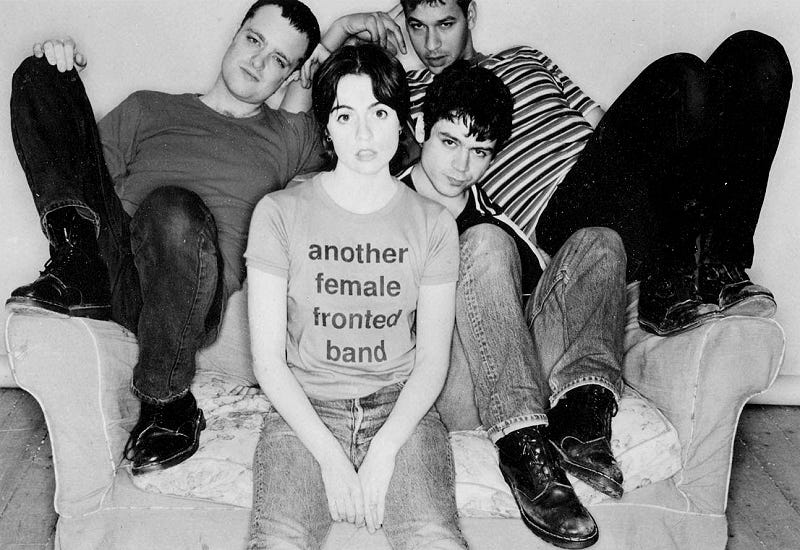Photo source: https://blog.roughtrade.com/gb/rough-trade-essential-britpop/
In case you haven’t heard, a rather famous band of brawling brothers is reuniting for a series of gigs in 2025. Yes, Oasis is back—at least for now. The announcement is rather timely as August 29th (just 2 days ago) marked the 30th anniversary of their seminal album, Definitely Maybe. Just a coincidence, I’m sure. This album is undeniably genre-defining (sorry, Blur), and its influence is still evident today in bands like Kasabian and Arctic Monkeys.
With this monumental news, I've been reflecting on Britpop as a whole. When I think of the genre, I think of the infamous Oasis vs. Blur rivalry, North vs. South divide, laddish, loutish behaviour, and, of course, cigarettes and alcohol. I like Oasis—they are undeniably embedded in the UK's cultural landscape (who hasn’t been to a party where someone strummed a drunken rendition of "Wonderwall" on an out-of-tune acoustic guitar?). But they've never quite scratched the itch for me the way some other ’90s bands have. Their sound is so testosterone-driven that it feels a bit inaccessible at times. I’m not saying I’m fully a Blur girl either, though their brand of punchy art-pop aligns more with my personal tastes. I just feel like there’s more to the story of Britpop.
If we set aside the feuding brothers for a moment, what about the women of Britpop? They are less commonly discussed in the retrospective Britpop rhetoric but were just as crucial to shaping the Cool Britannia movement. These names were significant at the time but have since been somewhat sidelined in the narrative of that era. Justine Frischmann of Suede and Elastica was arguably the female face of Britpop, delivering classic hits like “Connection” from their 1995 debut—effortlessly cool, punchy, and seductive. Lush, fronted by Miki Berenyi and Emma Anderson, offered a feminist perspective on songs like “Ladykillers,” a potent critique of the sexism embedded in the music industry. Then there are the energetic, impactful tunes of Sleeper, who sang about the female experience in London with tracks like “Sale of the Century.” And what about Kenickie with a young Lauren Laverne as front-woman? They brought a punky edge with tracks like “In Your Car”, a fun, edgy take on youth: “I’m in heaven, I’m too young to feel so old.”
I’ve assembled a list of some of the best female or female-fronted acts from the Britpop era. Have a listen here:
Elastica
Lush
Echobelly
Sleeper
Kenickie
Catatonia
Salad
Linoleum
Although not strictly part of the Britpop scene, the influential band Skunk Anansie released powerful rock tracks around the same time and are often grouped with Britpop acts. I recently discovered that Skin, the band's lead singer, has written a memoir titled It Takes Blood and Guts. The book explores the alternative history of the era, including the rock and drum and bass scenes, and being whitewashed by the Britpop narrative. I’m definitely planning to check it out. Has anyone read it yet?
Who have I missed? Are there any other Britpop icons I should listen to?




Great post and I’ve just discovered your Substack so hello! I was/am a big fan of all the female fronted bands of that era. Especially Sleeper and Elastica. I’m pretty sure Echobelly are touring soon too. My first post-lockdown gig was Sleeper, which was so good. Louise Wener has a great autobiography that covers her experience of the music industry around that time. The misogyny and the lad culture. I love britpop and most of the bands that are labelled as being part of the genre. It’s interesting that most/all the bands of that era hate the Britpop label. Hard to define it as anything else though!
Can’t wait to read this! and on a random note, I need that shirt!